Drivers and fly-tippers face new litter penalties in Scotland
- Published
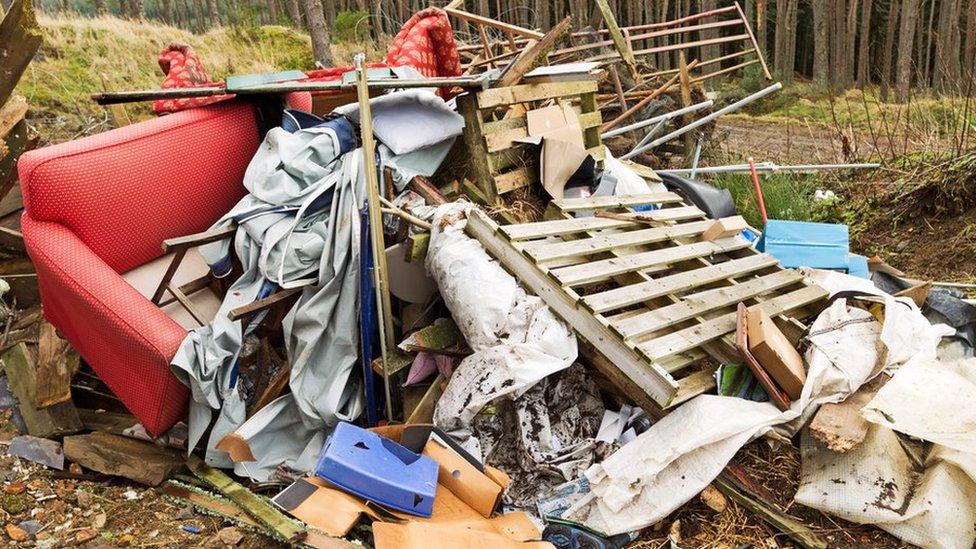
There will be new support for landowners to deter fly-tipping on their land
Larger penalties for fly-tipping and fresh powers to fine drivers who throw rubbish from vehicles are part of a new Scottish government litter strategy.
Fly-tipping fines will be raised from £200 to £500.
There will also new support for schemes that provide alternatives to single-use items like coffee cups.
Circular Economy Minister Lorna Slater said it was part of a wider package of measures to tackle Scotland's "throwaway culture".
More than £280m a year is spent cleaning up litter in Scotland, which environmental campaigners say is the worst in a decade.
The six-year "National Litter and Fly tipping Strategy" sets out how national and local government, businesses and communities can work together to drive change.
It includes an action plan of measures to be carried out by Scottish government and partner agencies in the first year.
A key measure is fines for fly-tipping rising to £500, with support for private landowners - including funding for trials - to help deter rubbish being dumped on their property.
There will also be increased action to detect fly-tippers, especially unregistered waste carriers advertising online, and a dedicated Sepa operation to tackle rogue operators.
The strategy also includes new powers to a fine the registered keeper of a vehicle that has committed a littering offence.
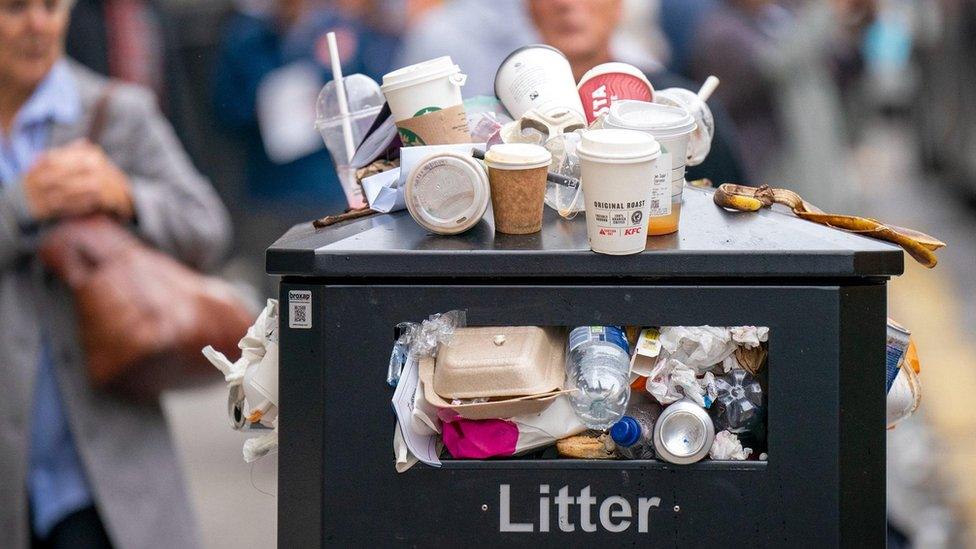
Single use coffee cups are used in their millions each year
A new online hub will also be launched to provide information and support to community groups and other local organisations about tackling litter problems.
The strategy has been developed in partnership with Zero Waste Scotland, Keep Scotland Beautiful and environment agency Sepa.
Barry Fisher, CEO of Keep Scotland Beautiful, said the strategy did not deliver everything they had asked for, but he recognised that Scotland was facing "a number of challenges which make this unrealistic at this time".
He added: "We realise that the strategy will not immediately reverse the decline we have recorded in cleanliness levels across Scotland, however it is a positive start, and we are now calling on everyone to play their part."
Circular Economy minister Lorna Slater said "enforcement" was a key theme of the plan.
She added: "The strategy sets out robust commitments, including raising fixed penalty notices for fly-tipping to £500 and considering increasing fines further if required.
"It is part of a wider package of measures to tackle Scotland's throwaway culture, including becoming the first nation in the UK to ban some of the most problematic single-use plastics, a commitment to introduce a charge on single-use cups, the introduction of a Deposit Return Scheme, and reform of extended producer responsibility for packaging."
- Published28 June 2023
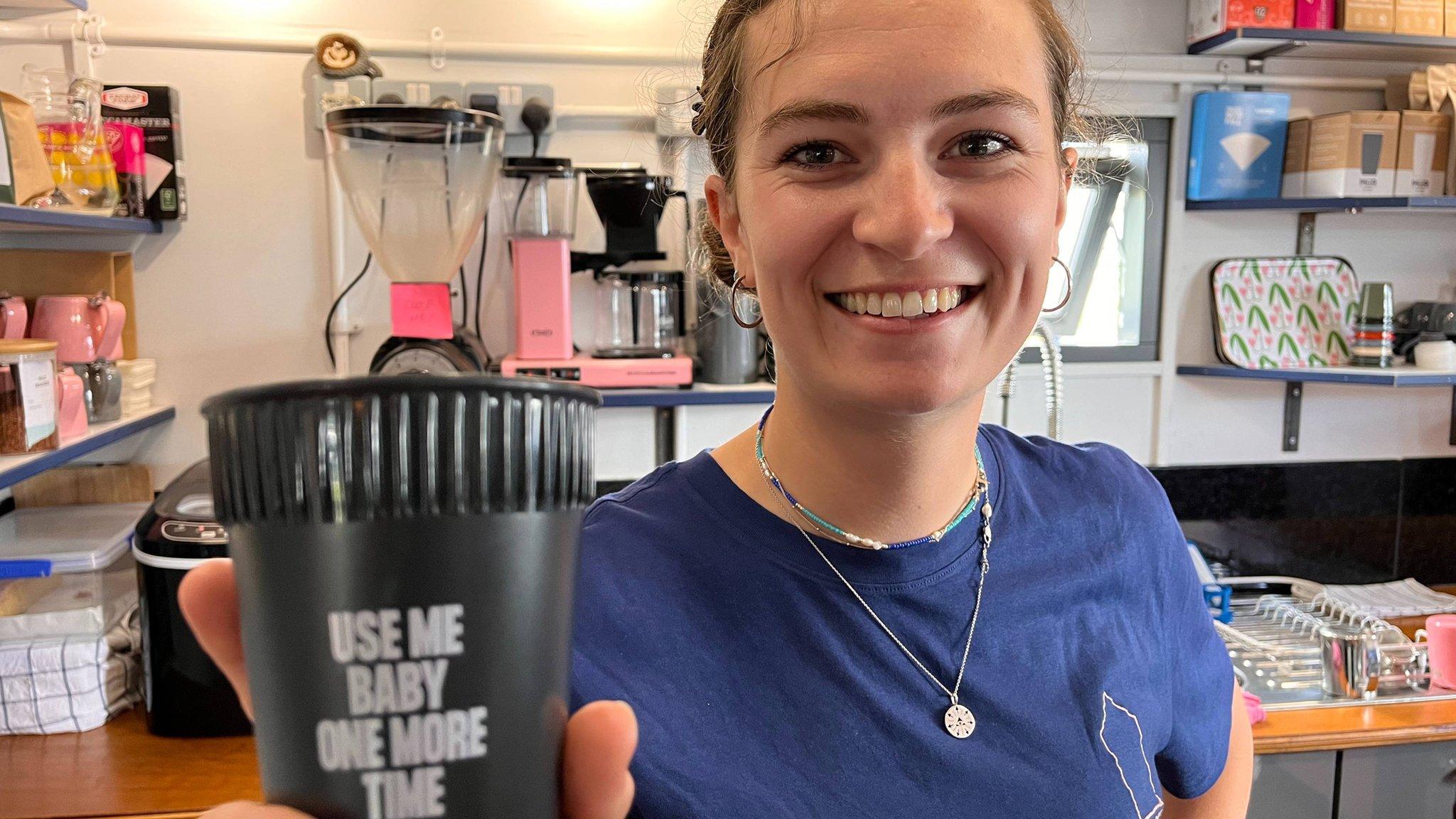
- Published31 January 2022
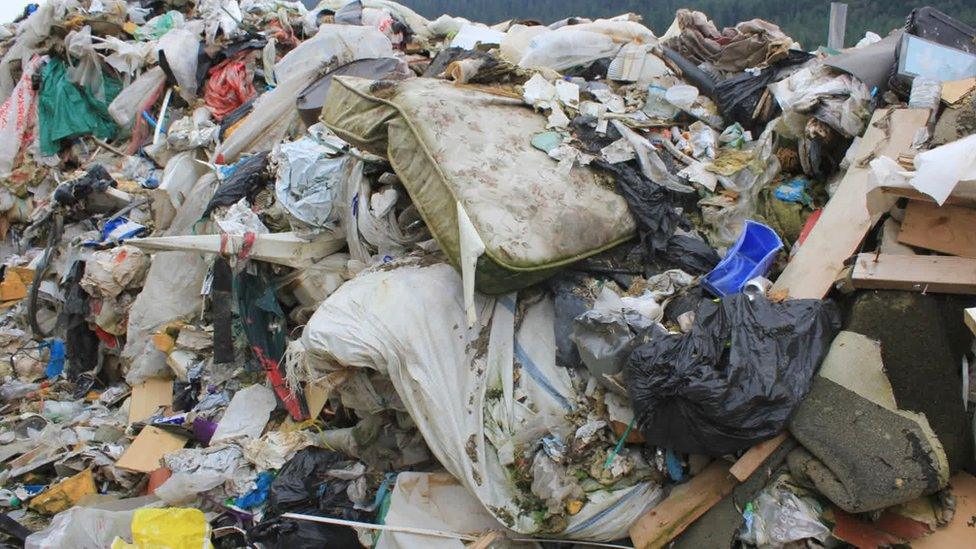
- Published1 April 2023
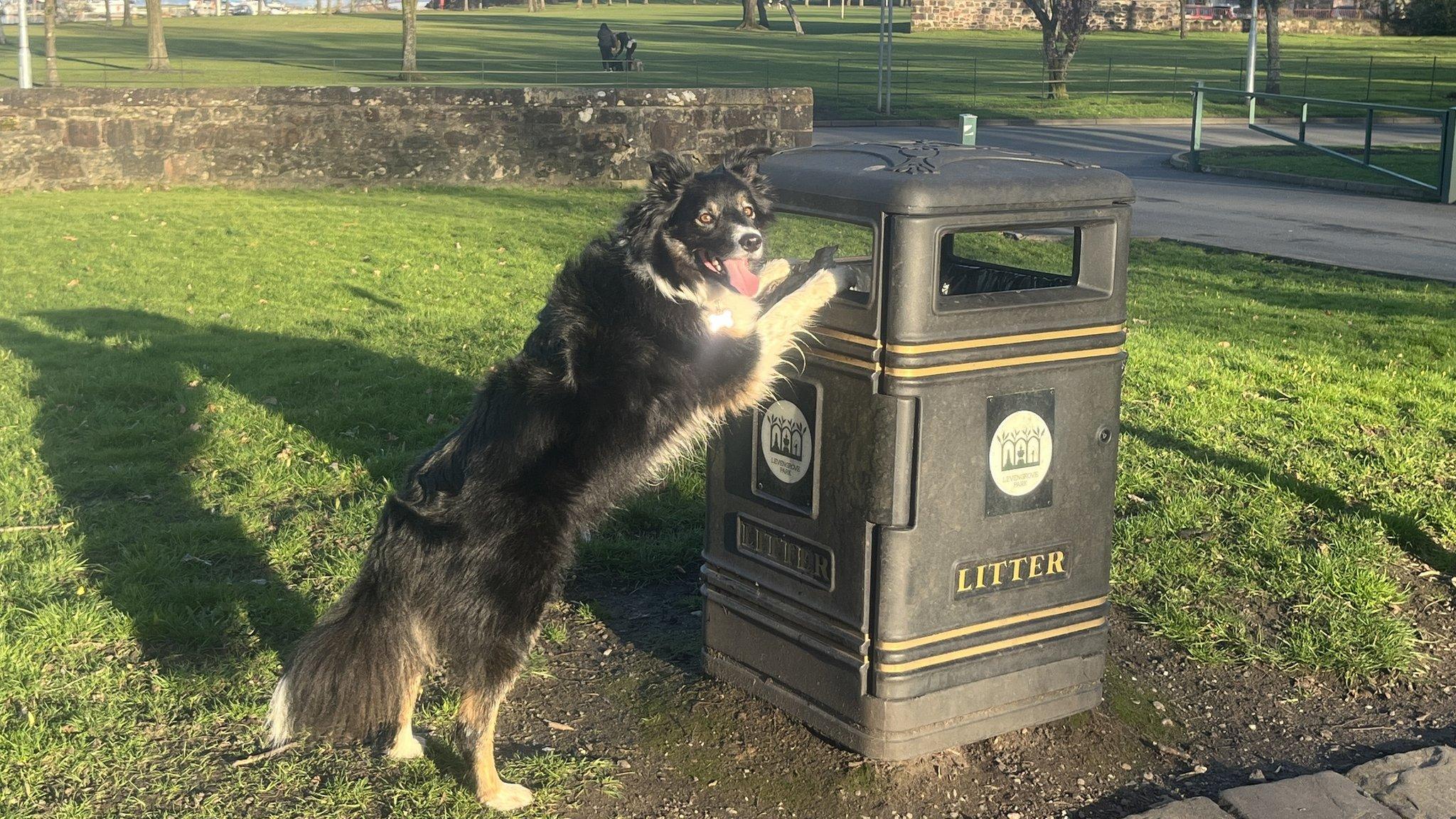
- Published3 March 2023
